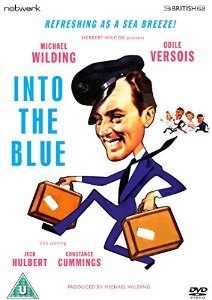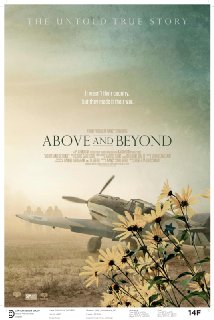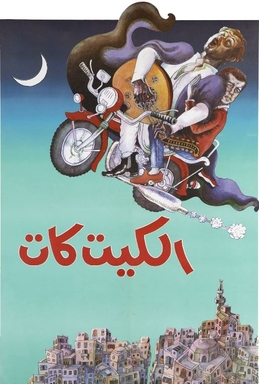
Amy Johnson was a pioneering English pilot who was the first woman to fly solo from London to Australia.
Egyptair is the state-owned flag carrier of Egypt. The airline is headquartered at Cairo International Airport, its main hub, operating scheduled passenger and freight services to 81 destinations in Africa, Europe, Asia, and The Americas. Egyptair is a member of Star Alliance.

The de Havilland Canada DHC-1 Chipmunk is a tandem, two-seat, single-engined primary trainer aircraft designed and developed by Canadian aircraft manufacturer de Havilland Canada. It was developed shortly after the Second World War and sold in large numbers during the immediate post-war years, being typically employed as a replacement for the de Havilland Tiger Moth biplane.

The de Havilland DH.82 Tiger Moth is a 1930s British biplane designed by Geoffrey de Havilland and built by the de Havilland Aircraft Company. It was operated by the Royal Air Force (RAF) and other operators as a primary trainer aircraft. In addition to the type's principal use for ab initio training, the Second World War had RAF Tiger Moths operating in other capacities, including maritime surveillance and defensive anti-invasion preparations; some aircraft were even outfitted to function as armed light bombers.

The de Havilland DH.89 Dragon Rapide is a 1930s short-haul biplane airliner developed and produced by British aircraft company de Havilland. Capable of accommodating 6–8 passengers, it proved an economical and durable craft, despite its outdated plywood construction.

Robert Edward Stevenson was a British-American screenwriter and film director.

The de Havilland DH.104 Dove is a British short-haul airliner developed and manufactured by de Havilland. The design, which was a monoplane successor to the pre-war Dragon Rapide biplane, came about from the Brabazon Committee report which, amongst other aircraft types, called for a British-designed short-haul feeder for airlines.

The Cairo International Film Festival is an annual internationally accredited film festival held in Cairo Opera House. It was established in 1976 and has taken place every year since its inception, except for 2011 and 2013, when it was cancelled due to budget limitations and political instability. It is the only international competitive feature film festival recognized by the FIAPF in the Arab world and Africa, as well as the oldest in this category.

The Egyptian film industry is today based mainly in Cairo, which is sometimes referred to as Hollywood on the Nile or Hollywood of the East, despite having its beginnings in the city of Alexandria in the early 20th century. A strong industry grew in Egypt with a high distribution rate among the Arab world, and Cairo produces around three-quarters of the Arab world's screen output. It has had a large effect on the African and Arab film industry since the early 20th century.

Sheikh Sultan bin Muhammad Al-Qasimi is the ruler of the Emirate of Sharjah and a member of the Federal Supreme Council of the United Arab Emirates.
Tim Whelan was an American film director, writer, producer and actor, best remembered for his writing credits on Harold Lloyd and Harry Langdon comedies, and for directing mostly British films, such as The Thief of Bagdad (1940).

To the Ends of the Earth is a 1948 American film noir thriller film directed by Robert Stevenson and starring Dick Powell, Signe Hasso and Ludwig Donath. It was released by Columbia Pictures.

Harold Huth was a British actor, film director and producer.

Cairo Road is a 1950 British crime film that was directed by David MacDonald. It stars Eric Portman, Laurence Harvey, Maria Mauban, Harold Lang and John Gregson.

Into the Blue is a 1950 British comedy film directed by Herbert Wilcox and starring Michael Wilding, Odile Versois and Jack Hulbert. It is also known as Man in the Dinghy. In the film, a couple hire a yacht for what they hope will be a relaxing cruise to Norway, but instead become involved with smugglers and end up going up the River Seine to Paris.

Above and Beyond is a 2014 documentary film about Mahal, produced by Nancy Spielberg, the youngest sister of Steven Spielberg,, written by Sophie Sartain, and directed by Roberta Grossman.

Almaza Air Base is a Air base of the Egyptian Air Force located in Heliopolis, Cairo, Cairo Governorate. It was established as a civilian aerodrome, but was partly taken over by the British military, designated RAF Almaza. Today it is a military aerodrome of the Egyptian Air Force.

The Kit Kat is a 1991 Egyptian comedy that revolves around Sheikh Hosni, played by Mahmoud Abdel Aziz, a blind man living in the Al-Kit Kat neighborhood in Giza, Egypt. Sheikh Hosni lives with his mother and son and spends his days dreaming of riding a motorcycle and smoking Hashish. He does this to cope with his life as a blind man and the loss of his wife.

Bekesbourne Aerodrome was an airport located at the southeast edge of the village of Bekesbourne, southeast of Canterbury, Kent. It operated from 1916 until 1940, and had both military and civil roles.
Arabs are portrayed in film as film characters in both Arab films as well as non-Arab films, and both Arabs and non-Arabs take the role of an Arab. These portrayals often depict an ethnocentric perception of Arabs rather than an authentic and realistic depiction of Arabic cultures, religions, dialects, as well as customs and traditions. Common characteristics that are implemented in the role of Arab characters include speaking in a heavy accent, being hostile and vicious, and are in the context of terrorism. Key issues that have been explored in these portrayals include how Arabs are identified in mainstream Hollywood film, how Arabs self-represent themselves in their own film, with examples from Egyptian cinema, Palestinian cinema, as well as Syrian cinema. This article will also cover the emphasis on Islamophobia and its impacts on film. There has also been the portrayal of Arab women in film, the portrayal of Arabs post 9/11, the portrayal of Arabs in silent film, and positive portrayals and negative portrayals of Arabs. Lastly, the United States efforts to avoid the stereotyping of Muslims/Arabs and shifting the focus onto a positive outlook.

















